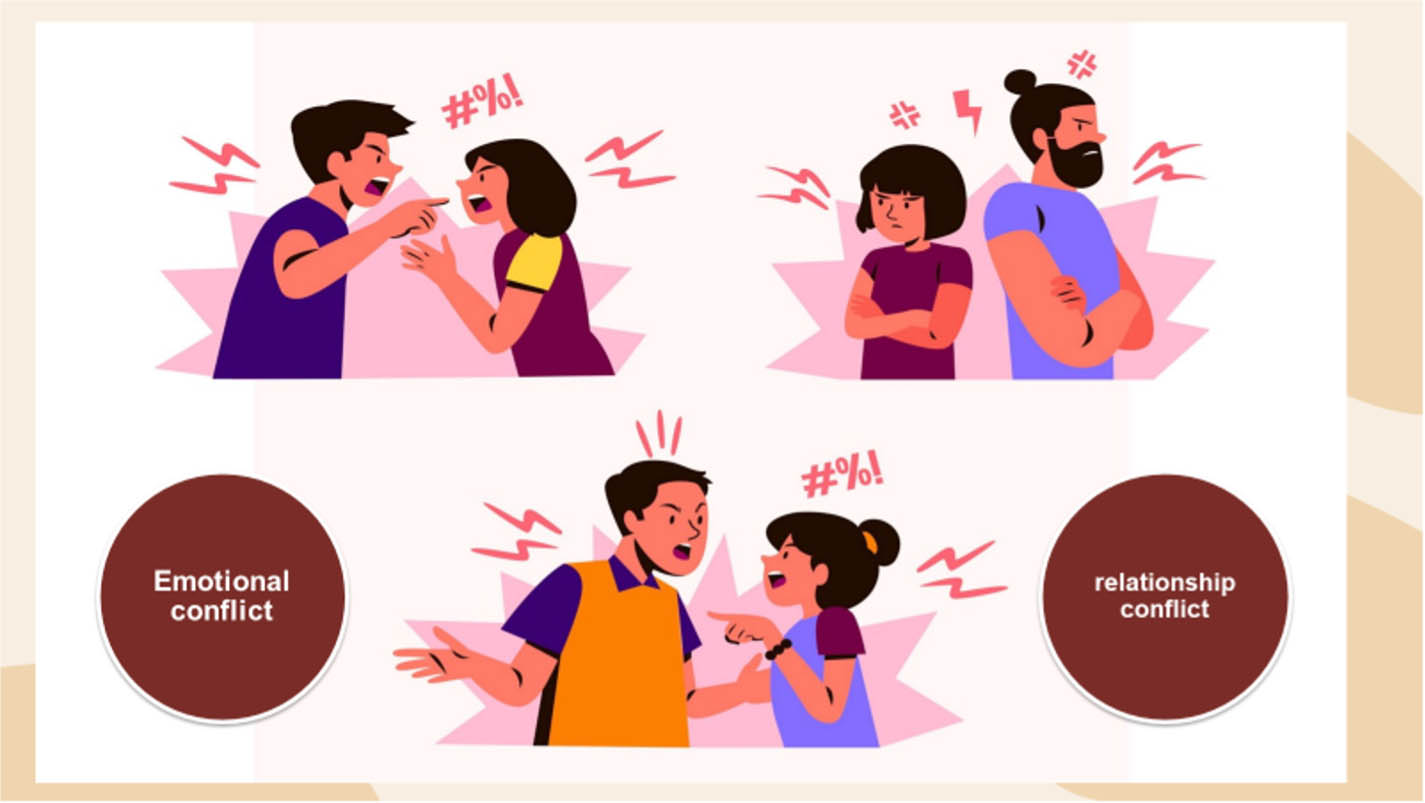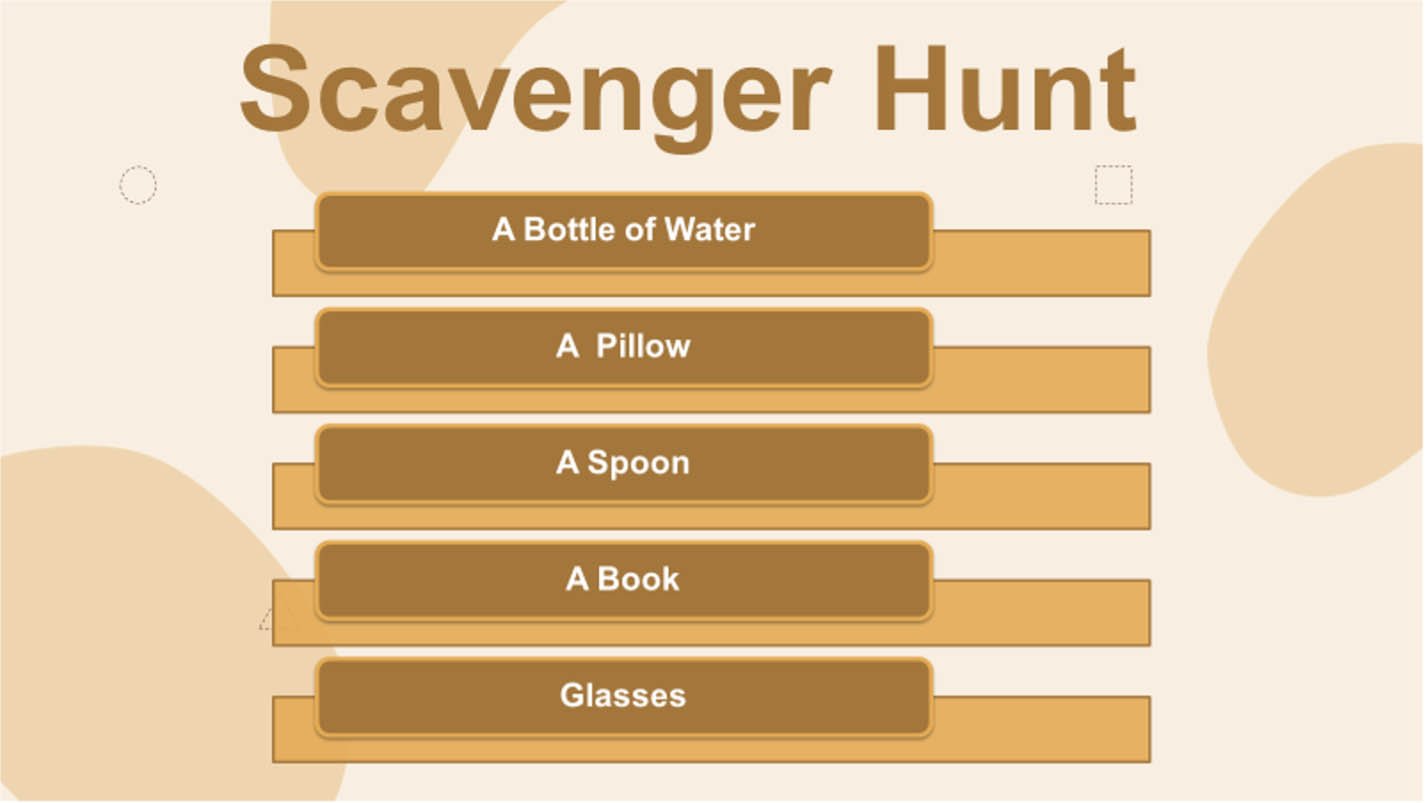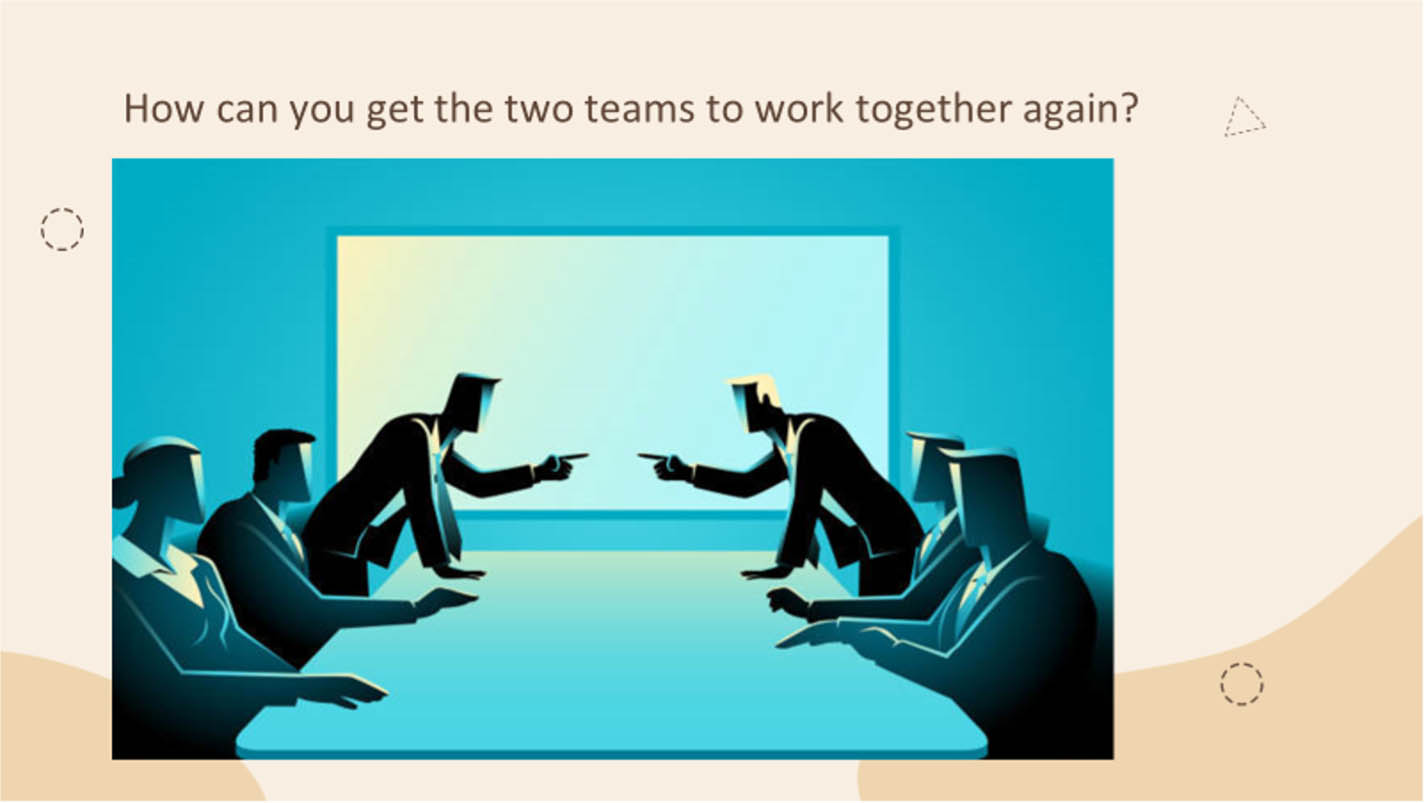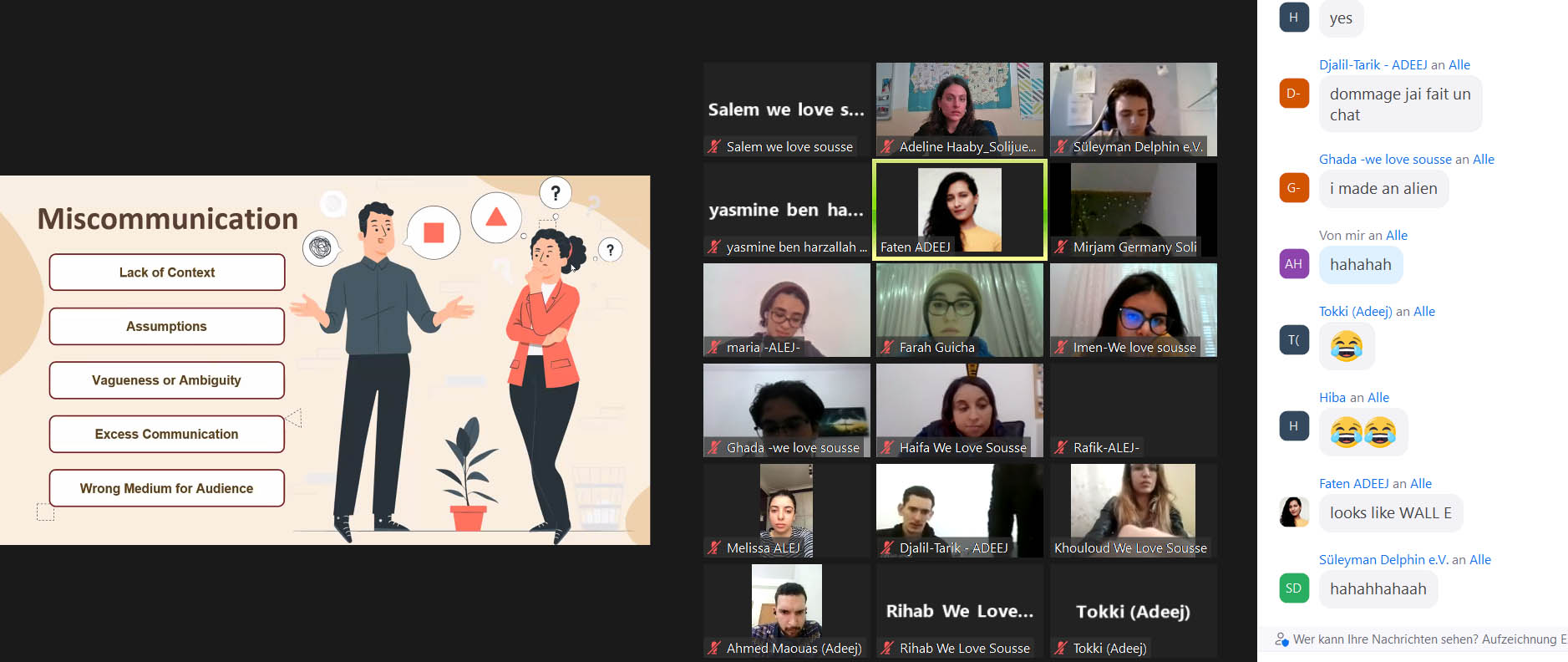
Workshop “Leadership and Conflict Management”
On Friday, March 18th took place the third workshop of the YVL program organized by the Algerian group of ADEEJ, around the following theme: “Leadership and conflict management”.
Faten, Tokki and Kamélia were the facilitators supported by Nassim and Adeline. While Faten was already used to facilitate groups in English due to her professional activity, for Tokki and Kamélia it was the first time they moderated an international group with 30 participants.
This time, the focus was on concrete conflict situations that can arise in the daily life of the young leaders. It is important to remember that the objective of the workshops is to provide not only specific knowledge for group leadership, but also to put the participants in practical situations and to give them the keys to understand how to solve a conflict in a sustainable way.
During the first part of the program, moderated by Tokki, participants wrote down on a sheet of paper a conflict they have faced recently and remained unsolved. Tokki then presented the different types of conflicts and the reasons why it is preferable to confront a conflict situation.
The second part of the workshop, brilliantly articulated by Faten, targeted the following objective: make the participants aware that giving clear and precise instructions is as difficult as developing active listening skills.Through a practical exercise, the participants realized in a concrete way that some instructions which, at first glance, might seem simple and accessible by all, can be easily misunderstood and misinterpreted.
Faten then presented the 5 phases to be distinguished when talking about conflicts: the preludes of the conflict, the disruptive event, the initiation phase, the differentiation phase.
Since breaks are of paramount importance and should always be taken seriously, the workshop moderators decided to combine relaxation with fun during time-out. Indeed, the participants had 10 minutes to conduct a scavenger hunt and bring back the following objects: a water bottle, a cushion, a spoon, a book and glasses. On your marks, get set, go.
After a well-deserved break, the third part of the workshop, moderated by Kamélia and Nassim suggested a concrete case to be solved in team.
The objective was to discuss in small groups concrete solutions to the following conflict:
The members of your project team are in serious conflict. They are divided into two camps. The last team meeting was a disaster: four team members are sitting on one side of the table and the other four on the other side. As a team leader, you felt the tension in the air. You ended the meeting after only 30 minutes because nothing was resolved. How can you get the two teams to work together again?”
At the end of the workshop, the participants discussed again in small groups the situation they had written down on paper at the beginning of the workshop and presented it orally to the other leaders. The objective was to find together an appropriate solution to each particular situation.
And you, when do you think a conflict, in all its complexity, may lead to a balanced situation and bring change?
As a conclusion, after combing through the various forms that conflict can take, Faten asked the participants: “How can conflict be healthy?” And you, when do you think a conflict, in all its complexity, may lead to a balanced situation and bring change?
The next workshop will take place on Friday 29th March between 3 pm and 5:30 pm and will be hosted by the German members. What will be the next topic for the young leaders? All bets are off.
The project runs until the end of 2022 and is funded by the German Federal Foreign Office.




